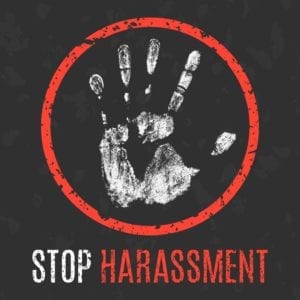Lawyers Sue Employers Who Allow Harassment In The Workplace
Harassment in the workplace may be defined as intimidation or aggressive pressure. Usually it involves unwanted or annoying actions that continued. The purpose of harassment may vary. At times it is of a sexual nature. Other times harassment law involves an employer who allows the continued bulling of an employee or an attempt of some employees to have a disliked co-worker leave the workplace. Harassment law may even extend to forms of financial collection that are illegal. 2017 marked the emergence of harassment law as a new tort in Canada. This means that employment lawyers and litigation lawyers are now able to sue for damages when someone has been harassed.
Where Are The Courts On Harassment Law
As stated, harassment law is a new tort. A tort is an act or the preventing of someone’s right wrongfully that has the ability to lead to a civil claim for damages. Torts are outside of contract law and lead to an ability to sue directly based on actions and not breach of contract. It is an independent cause of action. While the case that changed the law in Canada is an Ontario case, it may well be followed in Alberta. It should also be noted that as of the date of this page being posted, the defendant is looking to appeal the ruling to the Ontario Court of Appeal. For reference, the case is Merrifield v. The Attorney General. In this case an employee of the RCMP sued them for continued harassment under harassment law.
How Do Harassment Lawyers Prove A Case
Litigation lawyers always look for what is required to prove to win a case. They look to case law for the test that has to be applied to specific fact scenarios. The court in Merrifield set out a four part test to prove the tort of harassment. The test requires a positive answer to the following four questions:
• Was the conduct of the defendant(s) outrageous?
• Did the defendant(s) intend to cause, or have a reckless disregard for causing, emotional stress to the plaintiff?
• Did the plaintiff suffer from severe or extreme emotional distress?
• Was the plaintiff’s emotional distress actually caused by the defendant(s)?
If a plaintiff (the employee suing the employee) can prove that all these things occurred, the case suggests that they have met the requirements for the tort of harassment.
Step Employers Should Take To Avoid Harassment Litigation
There are several steps that employers should take to avoid being sued under harassment law. First, every employer should have, and follow, an anti-harassment policy. Learn more about anti-harassment policies and how they should be drafted. Second, when an incident of harassment occurs, management must follow the policy and take positive steps to make sure that the harassment does not continue. As set out by the court, there is a four part test to determine if harassment law has been violated. The court in Merrifield, did point out that the RCMP failed to take steps to investigate. This underlines the importance of employers taking positive actions to investigate and then take corrective steps when they learn of harassment to avoid tort damages in harassment law.
Can Harassment Lawyers Sue In Non-Employment Situations?
It may be that harassment law may extend past employment law. The four part test does not specify an employment situation. As an Alberta law firm, our litigation lawyers have seen damaging forms of harassment in a variety of situations. These situations include:
• Non-workplace sexual harassment
• Harassment of neighbours or other unit holders in a condominium
• Victims of stalkers and bullies
• Harassment of individuals whom a spouse, common law partner or other relation find threatening to (or have, real or perceived, interfered in) that relationship.
While it may take time for these types of situations to make their way through the court system, the four part test, on its own, appears to be relevant whenever an individual is harassed.
Seeking Damages For Harassment?
The harassment law employment lawyers and litigation lawyers at Kahane Law Office in Calgary, Alberta are here to help with litigation relating to damages that stemmed from harassment. Call us to book an consultation for us to review your situation at 403-225-8810 or you can email us directly here.

